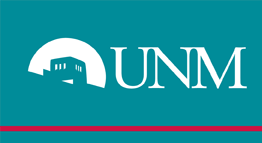Date
2012
Abstract
Human populations in Colorado, New Mexico and Texas depend on the Rio Grande for municipal water, agricultural irrigation, and recreation. The Rio Grande and its riparian corridor also support thousands of species of plants, invertebrates and vertebrates, some of which include over 300 species of migratory birds and the endangered Rio Grande silvery minnow and southwestern willow flycatcher. Eutrophication and salinization are the two most important types of water quality degradation which negatively impact the human and nonhuman biological communities in this water poor region. In spite of their significance, few published studies have investigated anthropogenic and natural sources of nutrients and dissolved solids to the Rio Grande. This study investigated the patterns and trends of nutrients and dissolved solids in the Middle Rio Grande (MRG) on a monthly basis from September 2005 – January 2008. During all months, wastewater treatment plants were the major source of nutrients to the MRG. Under high flow conditions, nutrient levels remained elevated for 260 river kilometers below the wastewater inputs. During months when significant portions of the river flow were diverted for irrigation, nitrate and phosphate were removed from the MRG and concentrations at the downstream end of the reach were returned to levels comparable to the un-impacted northern reach of river. Dissolved solids were added to the river by both wastewater and saline tributary inputs. Both anthropogenic and natural inputs of dissolved solids were found to affect water quality in the MRG. Continuous real-time measurements of temperature, pH, turbidity, dissolved oxygen, and conductivity also were initiated at four sites above and through the urban reach of the City of Albuquerque. Preliminary results show increasing turbidity and dissolved oxygen depletions associated with storm runoff from urban areas.
Handle
http://hdl.handle.net/1928/30043.1
Other Identifier
SEV180
Knowledge Network for Biocomplexity (KNB) Identifier
knb-lter-sev.180.374112
Document Type
Dataset
Rights
Data Policies: This dataset is released to the public and may be freely downloaded. Please keep the designated Contact person informed of any plans to use the dataset. Consultation or collaboration with the original investigators is strongly encouraged. Publications and data products that make use of the dataset must include proper acknowledgement of the Sevilleta LTER. Datasets must be cited as in the example provided. A copy of any publications using these data must be supplied to the Sevilleta LTER Information Manager. By downloading any data you implicitly acknowledge the LTER Data Policy (http://www.lternet.edu/data/netpolicy.html).
Source
http://dx.doi.org/10.6073/pasta/ee7f845be1c631b17540cf9ae94891a5
Temporal coverage
2005-09-17 - 2008-02-04
DOI
doi:10.6073/pasta/ee7f845be1c631b17540cf9ae94891a5
Permanent URL
http://dx.doi.org/10.6073/pasta/ee7f845be1c631b17540cf9ae94891a5
Recommended Citation
Van Horn, David; Dahm, Clifford. Rio Grande Water Chemistry Data from Bernalillo County, New Mexico (2006-2007). Long Term Ecological Research Network. http://dx.doi.org/10.6073/pasta/ee7f845be1c631b17540cf9ae94891a5
Show full metadata
knb-lter-sev.180.374112-provenance.xml (4 kB)
Show provenance metadata
knb-lter-sev.180.374112-report.html (26 kB)
Show original LTER Network Data Portal ingest report
sev180_waterchemistry_02282012.txt (131 kB)
Data in TXT format


Comments
This dataset was originally published on the Long Term Ecological Research (LTER) Network Data Portal, https://portal.lternet.edu, and potentially via other repositories or portals as described. The Digital Object Identifier (DOI) of the source data package is doi:10.6073/pasta/ee7f845be1c631b17540cf9ae94891a5, and may be accessed at http://dx.doi.org/10.6073/pasta/ee7f845be1c631b17540cf9ae94891a5. Metadata and files included in this record mirror as closely as possible the source data and documentation, with the provenance metadata and quality report generated by the LTER portal reproduced here as '*-provenance.xml' and *-report.html' files, respectively.